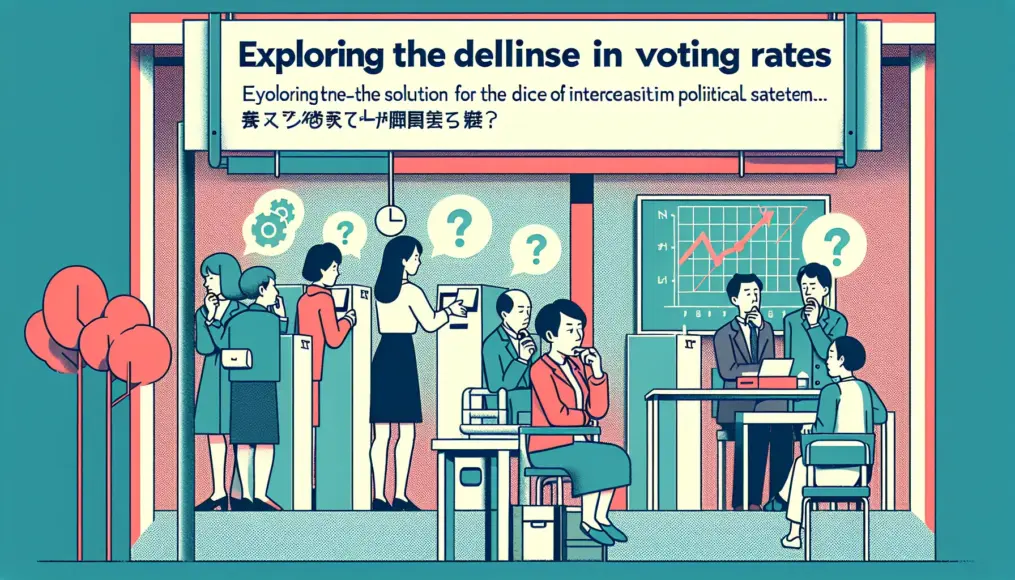Kakuei Tanaka’s proposal of the “Japan Archipelago Development Theory” marked a significant turning point in the post-war evolution of Japan. This vision embodied a strong commitment to enhancing the lives of citizens through national infrastructure development and regional revitalization. The cultural impact of this theory continues to resonate in our everyday lives.
Let’s delve into how Tanaka’s policies influenced regional culture and the relationship between urban and rural areas, and explore the cultural changes that emerged as a result. His ideas extend beyond mere economic policy, providing a roadmap for enriching Japan’s overall culture.
In this article, we will explore the historical background of the Japan Archipelago Development Theory, the cultural transformations that followed, and its relevance in contemporary society. Let’s reflect together on what Tanaka’s vision teaches us today.
- An overview of Kakuei Tanaka’s political background and economic motivations
- An examination of the impact of the Japan Archipelago Development Theory on regional culture
- An exploration of the significance of Tanaka’s vision in modern times
The Background of Kakuei Tanaka and the Japan Archipelago Reconstruction Theory
Kakuei Tanaka’s “Japan Archipelago Reconstruction Theory” was one of the key policies that significantly impacted Japan’s post-war politics and economy. This theory aimed to improve the quality of life for the citizens by enhancing the country’s infrastructure and promoting regional development. As Japan experienced rapid economic growth, Tanaka had a clear vision for addressing urbanization and the disparities between regions.
In this section, we will delve into the political context in which Tanaka developed the Japan Archipelago Reconstruction Theory, as well as the economic motivations behind it. Understanding the situation in Japan at that time is crucial to grasping the impact of his policies.
Political Context
The backdrop for Tanaka’s Japan Archipelago Reconstruction Theory was the reconstruction and stabilization of post-war Japan. He focused on revitalizing the local economy to enhance the lives of citizens, emphasizing balanced development across the entire country. His political style was characterized by a strong connection to local communities, and he was praised for his commitment to reflecting their voices in national politics.
As a result, Tanaka established himself as a pioneer of local revitalization, garnering widespread support. This context forms the foundation of the Japan Archipelago Reconstruction Theory.
- Tanaka aimed to revitalize the local economy during the post-war reconstruction
- His commitment to reflecting local voices in national politics was well-regarded
- He established himself as a pioneer of local revitalization
Economic Motivations
Tanaka’s Japan Archipelago Reconstruction Theory was driven by specific economic motivations. Amidst rapid economic growth, the widening economic gap between urban and rural areas led him to believe that regional development would contribute to the overall growth of the nation. He recognized that improving infrastructure and transportation would directly stimulate local economies, and he pushed forward policies to facilitate this.
His belief was rooted in the conviction that economic development would enhance culture and living standards, aiming for growth that capitalized on the unique characteristics of each region. Thus, Tanaka’s economic perspective became an essential element for realizing the Japan Archipelago Reconstruction Theory.
To grasp how crucial revitalizing local economies was in relation to Tanaka’s theory, it’s helpful to explore successful examples and challenges of local revitalization. If you’re interested in this topic, check out the article “The Truth About Regional Revitalization! Success Stories and Challenges.” It will provide deeper insights into the essence of local revitalization and help consider the future of communities.
- He believed regional development would contribute to national growth
- Advocated for improving infrastructure and transportation
- Held the belief that economic development enhances culture and living standards
Cultural Shifts Brought About by the Japanese Archipelago Development Theory
The implementation of the Japanese Archipelago Development Theory has led to significant changes in regional cultures and the relationship between urban and rural areas. Tanaka Kakuei’s policies not only spurred economic growth but also impacted local identities and cultures. It’s crucial to examine how regional cultures were shaped and how the dynamics between cities and rural areas evolved as the nation’s infrastructure developed.
This section explores the cultural transformations resulting from the Japanese Archipelago Development Theory, focusing on its impact on regional cultures and the new dynamics between urban and rural communities.
Impact on Regional Cultures
The Japanese Archipelago Development Theory profoundly influenced regional cultures. Under Tanaka Kakuei’s policies, initiatives to promote local industries and develop tourism resources gained momentum. As a result, traditional practices and cultural aspects of various regions were re-evaluated, fostering a sense of pride among local residents.
Moreover, regional specialties and cultural events became recognized on a national level, leading to increased interactions between different areas. These cultural shifts promoted revitalization in various regions and played a pivotal role in showcasing rural charms to the wider public.
- Regional industries were revitalized, leading to a re-evaluation of local cultures
- Local specialties and cultural events gained national recognition
- Increased interactions between regions helped convey the allure of rural areas
Evolving Urban-Rural Relationships
The Japanese Archipelago Development Theory also brought about significant changes in the relationship between urban and rural areas. Tanaka Kakuei believed that the development of rural regions would contribute to the growth of cities, prompting efforts to improve infrastructure. This led to stronger connections between urban and rural areas, creating a relationship of mutual dependence.
As the trend of population migration from rural areas to cities continued, the necessity of revitalizing rural regions was re-emphasized. This shift prompted calls for measures to alleviate urban overcrowding, fostering a new cooperative dynamic between cities and rural areas aimed at sustainable regional development.
For those interested in deepening their understanding of the re-evaluation of regional cultures and the evolving urban-rural relationship, we recommend this article: “Considering the History and Future Perspectives of the Okinawa Issue.” It delves into how regional characteristics and cultures have been shaped and their contemporary implications.
- The idea that rural development contributes to urban growth gained traction
- Connections between rural and urban areas strengthened, forming interdependent relationships
- The importance of rural revitalization was re-recognized, leading to new collaborative efforts
The Impact of Economic Policy on Culture
The implementation of the Japan Archipelago Reconstruction Theory brought about significant changes in economic policy that also influenced culture. The policies of Kakuei Tanaka aimed to invigorate local economies, prompting a reevaluation of cultural activities and regional characteristics. It’s essential to explore how these economic policies contributed to cultural development and increased international recognition.
In this section, we’ll delve into the effects of revitalizing local economies on culture and how it has led to greater international awareness of cultural heritage.
Revitalizing Local Economies
Under the Japan Archipelago Reconstruction Theory, efforts to boost local economies also contributed to cultural growth. Tanaka sought to promote local industries, enabling residents to rediscover and take pride in their own cultural heritage. As local specialties and traditional crafts gained attention, regional cultures began to be reevaluated and appreciated.
Moreover, the rise of local events and festivals fostered connections between residents and tourists. This increase in cultural exchange provided more opportunities for local cultures to be showcased, ultimately broadening the appeal of these regions.
- Promotion of local industries facilitated the reevaluation of culture
- Local events and festivals flourished, creating opportunities for exchange
- Regional culture reached wider audiences, enhancing its appeal
International Recognition of Culture
The revitalization of local economies through economic policy also played a crucial role in enhancing the international recognition of culture. Tanaka’s proposed policies created opportunities to promote local specialties and cultural events on a global scale. As a result, the influx of international tourists increased, allowing regional cultures to gain international exposure.
Additionally, active cultural exchanges led to local art, music, and traditional events becoming known worldwide. This not only provided more opportunities for Japanese culture to be appreciated on the international stage but also enhanced the global recognition of local cultural heritage.
- Local specialties and cultural events were promoted internationally
- The increase in international tourists contributed to the spread of regional culture
- Active cultural exchanges led to greater appreciation of Japanese culture
The Impact of Kakuei Tanaka’s Vision on Modern Society
Kakuei Tanaka’s vision for transforming the Japanese archipelago goes beyond mere economic policy; it has left a profound imprint on contemporary culture and society. The regional revitalization and cultural development he championed continue to resonate in our daily lives. In this section, we will explore the cultural significance of Tanaka’s policies today and the lessons they offer for the future.
Tanaka’s philosophy encourages us to re-evaluate the importance of regional development and culture, providing insights on how we can support our local communities. Through his vision, a roadmap for sustainable regional development emerges.
Cultural Significance Today
Tanaka’s vision for reshaping Japan underscores the importance of local culture even in our modern context. His emphasis on respecting regional characteristics and traditions promotes development that leverages these unique qualities, a principle that remains vital for today’s regional revitalization efforts. The idea that local residents should take pride in their culture and foster a connection to their community is increasingly recognized as a driver for regional vitality.
Moreover, as interregional exchanges and cultural dissemination expand, we continue to learn the importance of embracing diversity and building a supportive society. In this way, Tanaka’s vision plays a crucial role in enriching the cultural significance of our time.
- Reinforcing the importance of local culture
- Pride in one’s culture among residents fosters revitalization
- Learning the importance of a supportive society that embraces diversity
Lessons for the Future
Tanaka’s vision is rich with lessons for the future. His policies highlight that promoting regional economies and cultures is foundational for building a sustainable society. The message that leveraging local characteristics to support development can lead to a better future resonates powerfully today.
Additionally, in an age where interregional cooperation and information sharing are increasingly vital, the importance of collaboration that Tanaka advocated serves as a valuable lesson for future community development. It is essential for us to consider how local societies should evolve moving forward, guided by Tanaka’s vision.
Having explored how Tanaka’s vision contributes to the promotion of local culture, those seeking further insights into regional development and culture may find this article on “The Background and Future of Free High School Education” informative. It delves into how Japan’s education policies impact local communities and culture.
- Promoting regional economies and cultures is essential for sustainable society
- Development that leverages local characteristics paves the way for a better future
- The importance of collaboration will be a key lesson for future community development
Conclusion
Tanaka Kakuei’s vision for revitalizing the Japanese archipelago played a crucial role in Japan’s post-war development. His policies not only spurred economic growth but also significantly influenced regional cultures and societal changes. As local economies began to flourish, the unique charm of rural areas was reevaluated, leading to greater international recognition of regional cultures. In this way, Tanaka’s vision offers us many valuable lessons that remain relevant today.
Moreover, the emphasis on inter-regional cooperation and information sharing, which his policies fostered, continues to be an essential element in building our communities moving forward. It’s important for us to revisit the significance of mutual support among regions as we strive toward creating a sustainable society, drawing from the principles laid out by Tanaka Kakuei.
- Tanaka Kakuei’s vision contributed to both economic growth and the development of regional culture.
- The revitalization of local economies led to a newfound appreciation for rural attractions.
- His vision provides lessons applicable to modern society.
Let’s explore how we can learn from Tanaka Kakuei’s ideas and apply them to our own communities. We’d love to hear your thoughts and feedback in the comments!



Comment